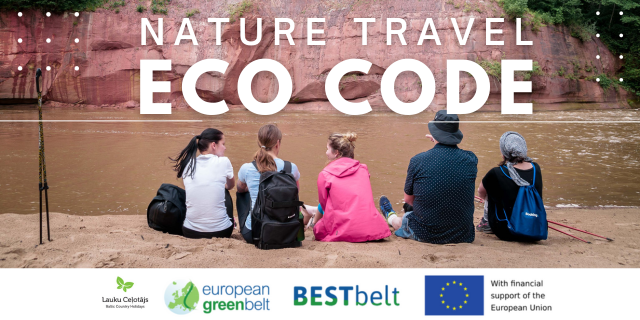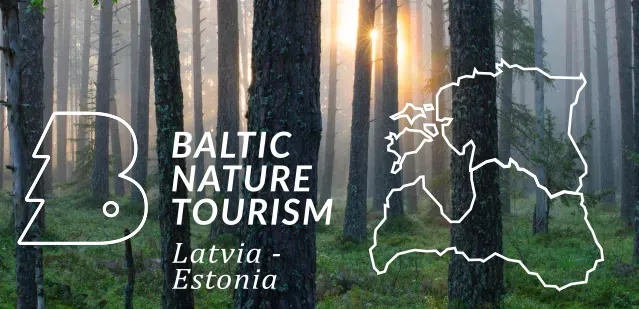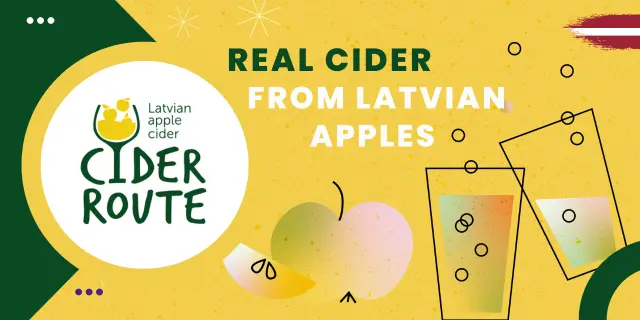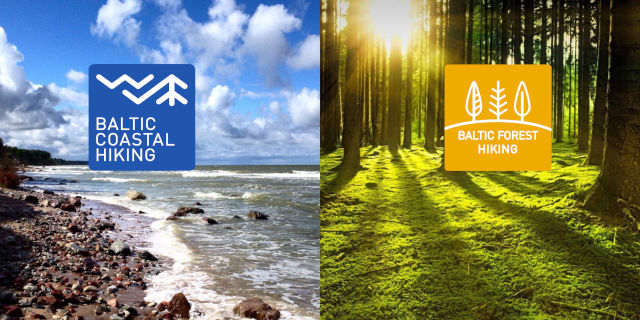Day 1 Riga
- Arrival in Riga.
- An excursion around Riga and a visit to its Old Town, which has been included on the UNESCO World Heritage List.
- Dinner and accommodation at a hotel in Riga.
Day 2 Riga – Limbaži – Ungurmuiža – Raiskums - Cēsis
- A visit to the Latvian Bakers' Association – talks and discussions about Latvian rye bread and its importance in Latvian cuisine.
- A visit to “Lielezers” bakery
SIA N. Bomja maiznīca bakery Lielezers is located in Limbaži. Founded in 1991, the company offers a variety of rye breads, wheat breads, and pastries. The pride of “Lielezers” bakery is its genuine rye bread, baked using ancient methods, making its value comparable to that of top-class cognacs. The portions of scalded flour are matured for 24 hours in homemade aspen tubs, guaranteeing the high quality of the bread and its unique taste. The bakery makes salinātā rye bread, which is baked directly on the hearth and has obtained the EU Traditional Specialities Guaranteed certificate. The loaves are divided and shaped only by hand.
- Lunch at the Ungurmuiža restaurant
- Beer Tasting at “Raiskumietis” Brewery
In Raiskums rural territory the light and dark unfiltered beer Raiskumietis is made. Water, barley malt, granulated hops and yeast are used in the brewing process. The beer gains its amber shade by being made in a boiling cauldron heated by firewood, as well as through the use of oak tubs for the leavening and fermentation of beer. The slow maturation process gives the beer its natural sparkle and clarity.
- A visit to Cēsis Old Town.
The history of Cēsis dates back to more than 800 years; it is a Hanseatic city and one of the former residencies of the Masters of the Livonian Order. In the heart of the city you will find the Cēsis castle ruins from the Livonian times and several medieval gardens, whereas the Cēsis New Castle, along with the picturesque Castle and May parks, are marked by the characteristic features of 18th and 19th century Romanticism. The paved streets of Cēsis Old Town have retained their medieval layout; the old buildings with their red-tiled roofs, closed courtyards, and renovated facades have also been preserved.
- Dinner and accommodation at a hotel in Cēsis.
Day 3 Cēsis – Āraiši – Priekuļi - Gaujasrēveļi – Gulbene
- Excursion around Āraiši Windmill
The windmill is located in the highest place of the area, boasting a wonderful view – you can see Āraiši church, the parsonage, and Āraiši lake, along with Ezerpils, the settlement of the ancient Lettgalians. One of the rare Dutch windmills (1852) in Latvia that is still in working order. Currently, it houses a museum; its four storeys tell of the way grains were ground in the past, and the visitors can also try out their miller skills. Jēkabi, the celebration of new rye bread, is held annually. Here, you can order the miller’s lunch – barley flour porridge with meat sauce, thin pancakes, kefir, and herbal teas.
- An excursion to the Plant Breeding Museum of Latvia in Priekuļi, housed in the Priekuļi Research Centre. This centre breeds and grows the certified ‘Kaupo’ grain variety for the needs of Latvian grain growers. The museum presents the history of grain cultivation in Latvia.
- Lunch at the “Kukaburra” pub
Here, genuine rye bread is baked, and the visitors can take part in the bread-baking process. The pub serves dishes that are popular among Latvians, using raw ingredients provided by local farmers. The interior features an exposition of antique items, bearing the name “Bread Museum”.
- A visit to “Ķelmēni” farm.
The Ķelmēni farm in Ranka rural territory practices closed loop organic farming – it grows rye, bakes bread, and produces and sells organic feed. Ķelmēni grows ‘Kaupo’ rye and uses ~800 ha for farming in total. Ķelmēni annually uses 700 tonnes of rye for baking bread; about half of it is grown on the farm, and the other half is purchased from another organic farm. The farm has been baking bread since 1993; at the moment, it bakes rye bread, sweet and sour bread, wheat bread, and grain bread. The bread-baking process takes about 80 hours in total before it can start its way to the consumer; the bread loaves are made by hand.
- Tālava Cider Tasting
The Tālava cidery is located in Vecgulbene Manor building complex in Gulbene. Tālava cider is 100% natural cider made from Latvian-grown apples. The cider is matured at a low temperature for several months; during this period it acquires its characteristic taste and aroma.
- Dinner and accommodation at Vecgulbene Manor
Day 4 Gulbene – Rekova – Kārsava – Malnava – Rēzekne
The “Kotiņi” farm was established in 1992. Its principal activity is grain and seed production, starting from the preparation of the field for sowing up to the harvesting of cereals and the drying and processing of the harvested production. Each product made has its application, thus creating added value. The total cultivated land area is 3000 ha; 2200 ha of this area are taken up by highly certified seed fields, from which certified cereal and legume seeds are harvested and produced. In 2018, about 6,000 tonnes of certified grains were produced from the harvest. The farm also produces locally certified rye.
- A visit to “Dzīles” bakery
The “Dzīles” hostess prepares filling Latgalian dishes, offers country delicacies, and demonstrates how to bake cakes and pīrāgi to the visitors. “Dzīles” bread is one of its special dishes and a renowned symbol of Kārsava. The farm offers the visitors an opportunity to try out bread-baking according to the old traditions and to taste and purchase bread. The hostess has also researched the local Malnava manor and the bread traditions that were introduced by the lady of the manor. Both ancient and modern recipes are used in the baking of bread.
- An excursion and tasting at “Latgolys Šmakovka”
In one of the historic buildings of the Malnava Manor, Jānis Kritvežs, an energetic young Latgalian man, has created a Latgalian šmakovka distillery. There you can get to know the history of this drink, starting from the feudal era to the present day, as well as see various equipment used for šmakovka production (both home and industrial). The distilling of šmakovka involves grains, fruit, as well as various infusions.
- Dinner and accommodation in Rēzekne.
Day 5 Rēzekne – Malta – Aglona – Kaplava – Krāslava – Daugavpils
- An excursion around the pottery studio of Aivars Ušpelis and Vēsma Ušpele
A farmstead with a unique feel, featuring a pottery studio and paintings by the hostess, as well as a collection of antiques. The fascinating craftsman is one of the “Pūdnīku skūla” (pottery school) potters and in his work makes use of knowledge handed down from his ancestors. He works together with his wife, the painter Vēsma Ušpele. Visitors to the studio can observe how ceramics are made, starting from throwing to firing in a wood-fired kiln. The potter’s works are on display and available for purchase.
- Lunch and a horse ride (optional) at “Klajumi” farm
The “Klajumi” horse ranch is an organic farm where Latvian horses are bred, located near the Latvian-Belarusian border. Visitors can enjoy horseback riding and 2–7 day horseback excursions, as well as accommodation in one of several holiday houses and catering. “Klajumi” offers traditional Latgalian dishes – stuffed potato dumplings (both big and small), vegetable & mushroom and meat & fish stews, veal rolls, and rye bread. You can enjoy oat biscuits, bilberry flour dumplings, cottage cheese doughnuts, and honey and crumble cakes for dessert.
- An excursion around the “Daugavas loki” nature park
The nature park features scenic, 4–6 km long Daugava river bends where the river has preserved its natural course. The largest river in Latvia, Daugava is often referred to as the river of the destiny of Latvia, and among all other rivers it is the one that is most often sung about in folk songs. The visitors may climb the 24m-high Vasarģelišķi sightseeing tower and enjoy the wonderful scenery of Daugava river valley, as well as visit the Slutišķi Old Believers’ village. It is the only place in Latvia where the museum of Old Believers’ cultural and historical heritage is located in an authentic populated village.
- A visit to Mark Rothko Art Centre in Daugavpils
Mark Rothko Art Centre is located in Daugavpils fortress. It is a multifunctional centre of contemporary art and culture and the only place in Eastern Europe where visitors can view the original paintings of Mark Rothko, the world-famous founder of abstract expressionism.
- Dinner and accommodation in Daugavpils.
Day 6 Daugavpils – Pļaviņas – Skrīveri – Lielvārde – Riga
- A visit to BURSH brewery and beer tasting
One of the smallest breweries in Latvia. Visitors can taste and purchase light and dark BURSH beer and listen to a story of how beer is made.
- A brief stop and dinner break at the shop and cafe of Liepkalni Bakery
- Skrīveri Homemade Ice Cream – an excursion and tasting of various ice creams.
It is a family-owned company with 12 years of ice cream production experience; the ice cream is made from cow’s milk from the neighbouring farms, as well as berries and fruits both from the forest and the company’s own garden. Here, happiness takes the shape of a scoop of ice cream, with a wide variety of tastes. The ice cream cafe offers not only snacks but also a full three-course meal of ice cream dishes, such as potato ice cream with tomato sauce, horseradish ice cream with red beets and sprat, chocolate ice cream with blue cheese, pumpkin ice cream, beer ice cream, and, of course, countless varieties of sweet ice creams with fruit and berries.
- Zelma Bakery – an excursion and bread-baking
The hostess Ligita Lasmane bakes traditional rye bread and sweet and sour bread in a large wood fired oven; the dough is fermented in wooden kneading troughs. Visitors may make their own special loaves of bread that they can take home afterwards. Listen to stories about bread-baking traditions, technologies and the significance of bread in the old Latvian farmsteads while you prepare the loaves and while the bread is baking in the oven.
- Dinner and accommodation in Riga.
Day 7 Riga
Departure.







